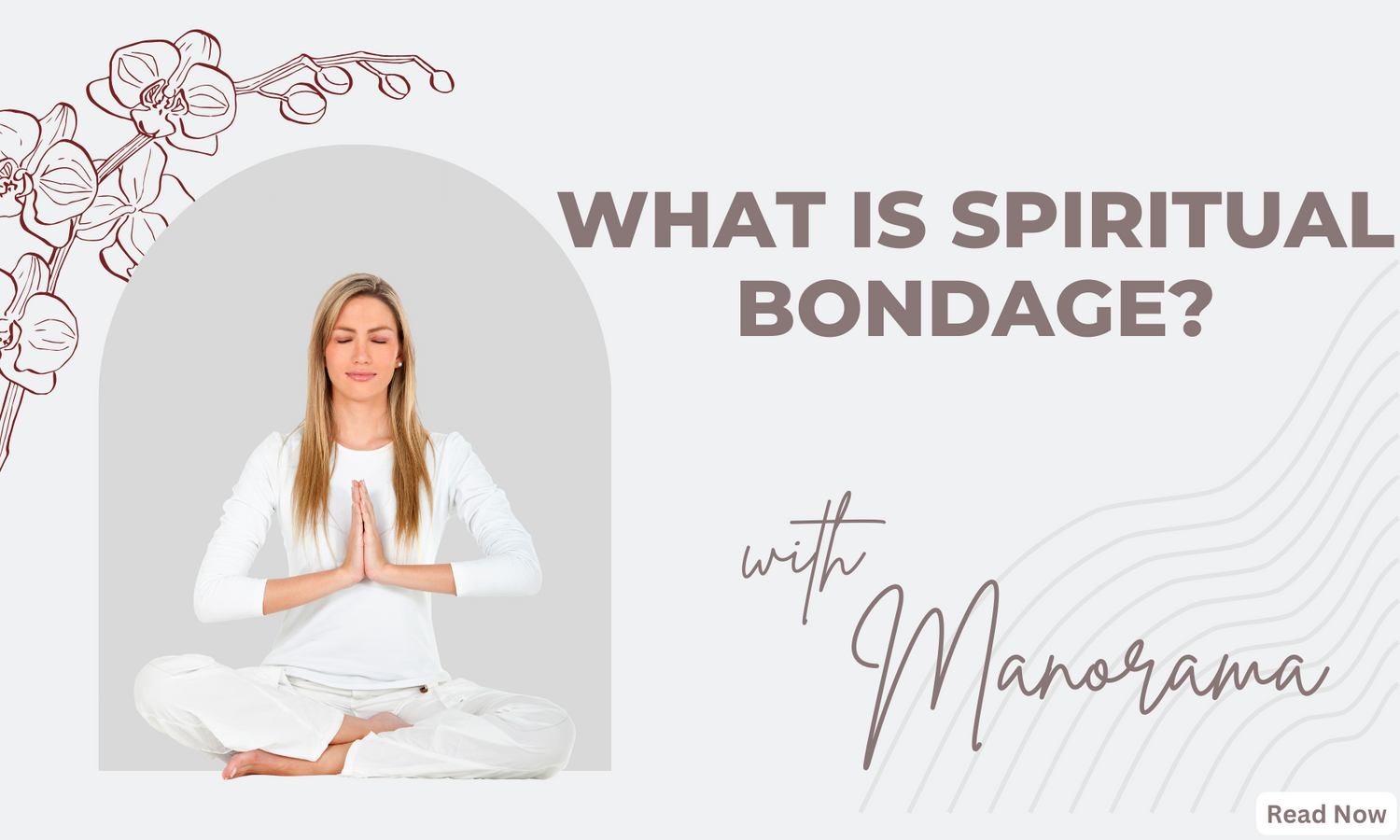"The ultimate bondage is the mind itself. When the mind is freed from its own limitations, we experience true liberation." - Ramana Maharshi
The concept of "spiritual bondage" may sound peculiar at first, but it's an idea that is worth exploring to understand yourself at deeper levels.
In the 21st century, where the pursuit of material success often overshadows our soul, understanding spiritual bondage has become increasingly relevant and important.
In this article, I’ll help you understand the core concept of spiritual bondage, how it’s been misunderstood for years, and how you can break free from it.
Defining Spiritual Bondage
To make it easy for you to understand, let’s break down the terms: “Spiritual” at its core means “matters of the soul,” while bondage” signifies the state of being enslaved.
Thus, you can say, “Spiritual Bondage” consists of the entanglement of the soul in the web of worldly illusions. Spiritual bondage manifests when people start to believe that they are nothing more than the body and mind, ignoring the vast expanse of their spiritual potential.
The Root of Misunderstanding
One of the biggest misconceptions described in Yoga philosophy is to believe that we are merely the body and mind, which then leads to us believe in something that we are notice. we start living by a mistaken identity. This misconception lays the ground for spiritual bondage, trapping individuals in a cycle of misidentification and suffering.So primarily, spiritual bondage arises from the fundamental misperception of our true nature. When we start to believe ourselves to be nothing more than physical entities governed by fleeting desires and egoic tendencies, we get caught in the illusion of limitation.
The Yoga Sutra Perspective

The Yoga Sutra of Patanjali, offers insights into the nature of Spiritual Bondage. Central to the Yoga Sutra by Patanjali is the concept of identification, what we identify with. Misidentification of self with false is discussed. In other words, the mistaken identification of the real with the unreal, and vice versa.
When we perceive the impermanent as permanent and take the permanent as impermanent, we disregard the eternal, and experience suffering because we live our life from a misunderstood place where we are not able to understand what’s real and unreal. This misunderstanding manifests in the form of spiritual bondage where from the Yogic view point we live in a confused state and prioritize our physical body, thoughts, and ego. This perspective builds up a sense of separation from others and the world around us. We see ourselves as individuals competing for limited resources, driven by self-centered desires.
Breaking Free
To break free from this spiritual bondage, we must focus on the wisdom of the ancient Yogis. Instead of allowing the identification with the body and mind to dictate our existence, we must align ourselves with the guidance of our soul. Only then can we surpass the confines of spiritual bondage and live a life of true yogic freedom.
Breaking free from spiritual bondage requires diligent practice and introspection. Begin by dedicating 5-10 minutes each day to silent meditation, observe your thoughts and sensations. Practice this for 30 days and you’ll notice subtle shifts in perception and awareness, creating the space for spiritual growth. Then come and see me in a class, or on zoom sometime
The Path to Freedom
In the words of my guru, Shri Brahmananda Sarasvati, “Don’t put the cart in front of the horse. Place the cart behind the horse and let the horse be in the front. In this way, your journey will be very smooth.” Meaning that true freedom lies in placing spirit above matter. By prioritizing the exploration of our spiritual nature, we dismantle the shackles of bondage and start to live a life of authenticity and purpose.
FAQs
1. What does bondage mean?
"Bondage" refers to a state of enslavement or restriction wherein the soul is confined or obscured. It signifies the entanglement of the spirit in the illusions of the material world, hindering its journey towards enlightenment and self-realization.
2. What is the definition of a spiritual stronghold?
A spiritual stronghold can be understood as a fortified barrier within the psyche that obstructs the free flow of spiritual energy and awareness. It represents entrenched patterns of thought and behavior that reinforce the illusion of separateness and limitation.
3. What are the different types of spiritual captivity?
Spiritual captivity manifests in various forms, each stemming from a different facet of ignorance and delusion. These may include attachment to material possessions, identification with the egoic self, and the pursuit of transient pleasures at the expense of spiritual growth.
4. What do the saints say about bondage?
Throughout history, saints and sages have offered profound insights into the nature of bondage and liberation. They emphasize the importance of self-awareness, discernment, and detachment in overcoming the illusions that bind us.




